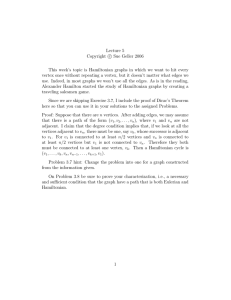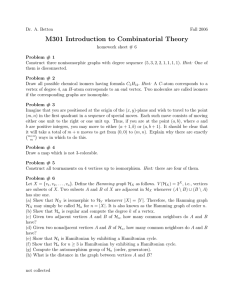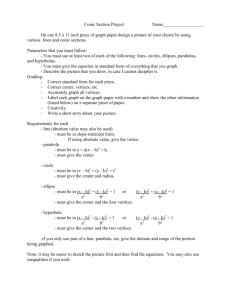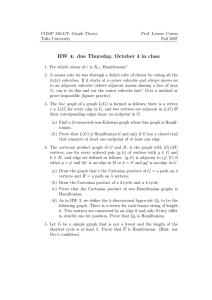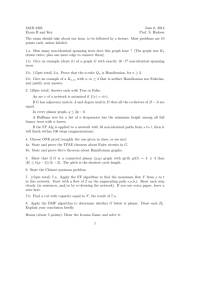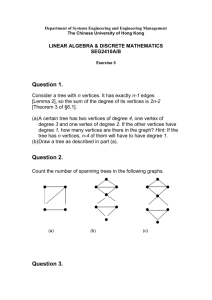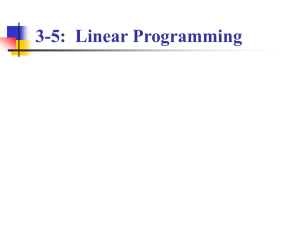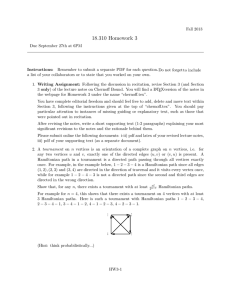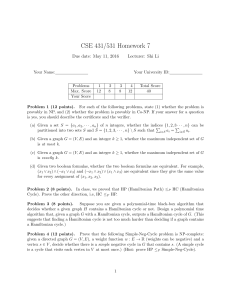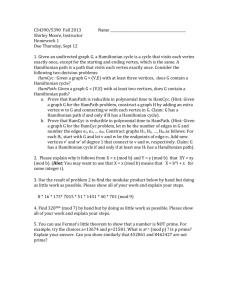Graph Amalgamation and Hamiltonian Decomposition of Multigraphs Mohammad Amin Bahmanian
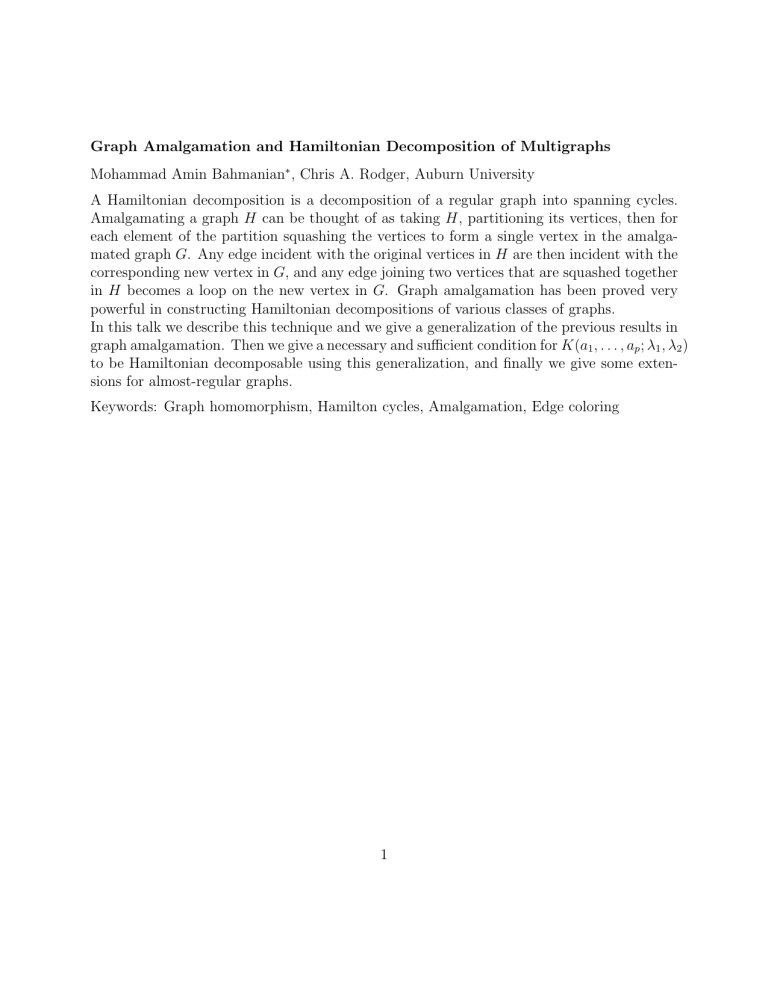
Graph Amalgamation and Hamiltonian Decomposition of Multigraphs
Mohammad Amin Bahmanian
∗
, Chris A. Rodger, Auburn University
A Hamiltonian decomposition is a decomposition of a regular graph into spanning cycles.
Amalgamating a graph H can be thought of as taking H , partitioning its vertices, then for each element of the partition squashing the vertices to form a single vertex in the amalgamated graph G . Any edge incident with the original vertices in H are then incident with the corresponding new vertex in G , and any edge joining two vertices that are squashed together in H becomes a loop on the new vertex in G . Graph amalgamation has been proved very powerful in constructing Hamiltonian decompositions of various classes of graphs.
In this talk we describe this technique and we give a generalization of the previous results in graph amalgamation. Then we give a necessary and sufficient condition for K ( a
1
, . . . , a p
; λ
1
, λ
2
) to be Hamiltonian decomposable using this generalization, and finally we give some extensions for almost-regular graphs.
Keywords: Graph homomorphism, Hamilton cycles, Amalgamation, Edge coloring
1
